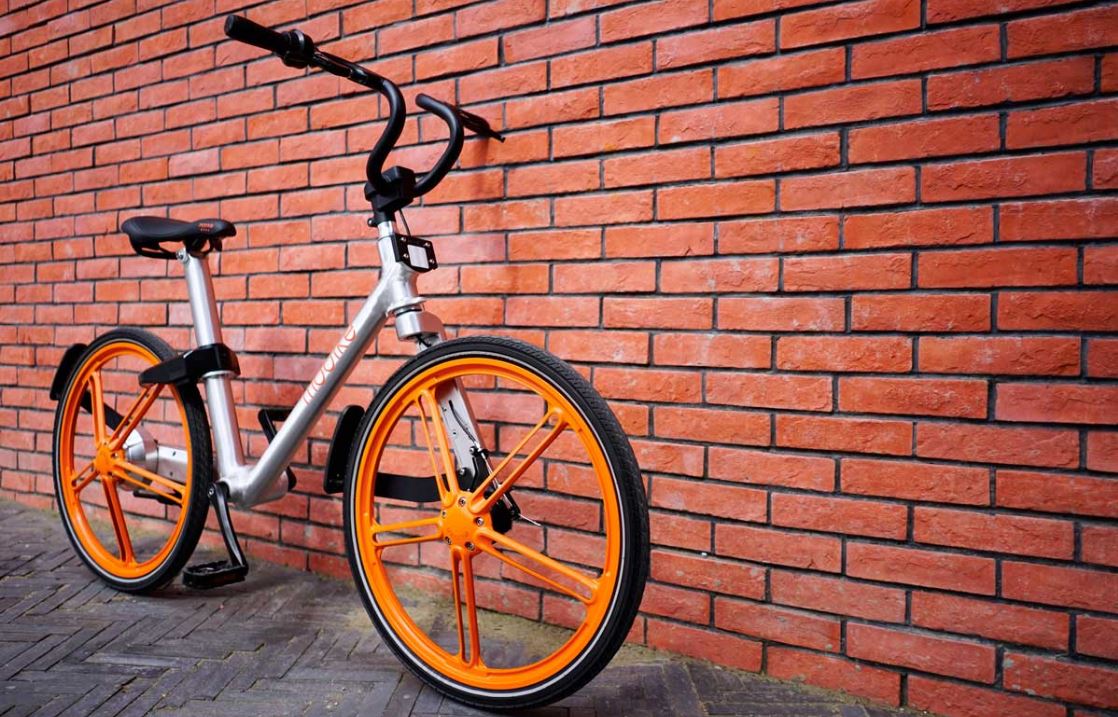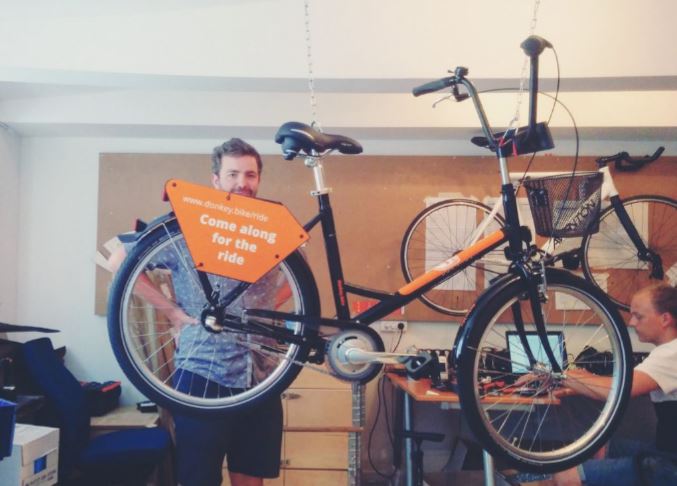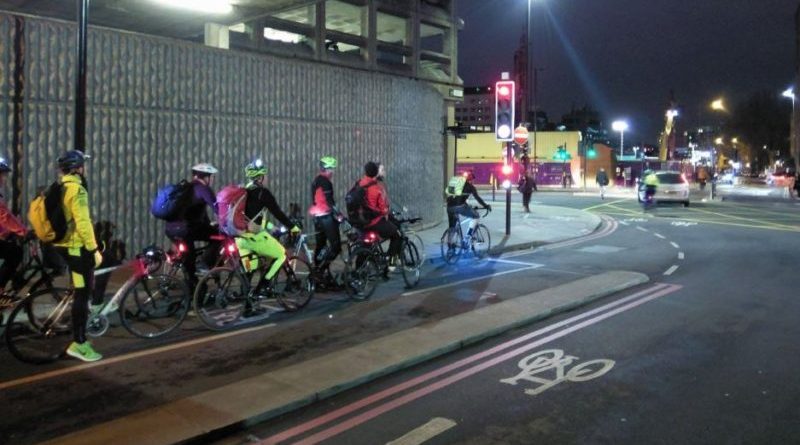Editor’s Comment: Where will dockless bike share most likely impact the bike business?
Dockless bike share’s expansion outside of China was always going to be a case of not if, but when expansion would accelerate overseas and the headlines are now stacking up almost daily. Today’s relates to Ofo’s Seattle launch, where 1,000 dockless bikes will now adorn the streets, in theory solving last mile transportation needs for the non-bicycle owning demographic.
And that’s the key here – that demographic represents the opportunity. As put by an expert in urban mobility, Tern’s captain Josh Hon, “City bikes are still a blue ocean for product development”. They certainly are and Hon’s label is indeed showing the possibilities, but product design aside, it’s the target market that are the real blue ocean. Even in a bike dense market like Holland, where cycle use actually tops car use in the majority of municipalities, a significant portion of the market are needing to be nudged toward active travel over longer distances with investment yet more infrastructure.
Holland is however a world-leader, we’re not all so lucky to have modal shares in excess of 50%, or as much as 62% during peak times if you’re further north in Copenhagen. Indeed the UK still languishes at around the 2% mark, despite continued evidence that cycling is of great economic and social worth when compared to other means of transport.
While comparison is near painful, it can and should be viewed as an opportunity for the UK business, which is currently importing less bicycles than it has done for more than seven years. The road boom has well and truly boomed and while that is seemingly translating to a steady increase in off road market interest, the mid-tier sports market is far from surging. Ultra high-end fairs slightly better, according to research soon to be published in CI.N’s Q4 Trade Journal. But how long can that sustain as bike retail’s typical customer offers less affluent generation X customers and more pain-in-the-neck-to-sell-to millennials?
It is those difficult (read internet savvy) customers that the bicycle industry has to adapt to and target aggressively if it is to divert short attention spans. Cycling has to be positioned primarily as affordable and healthy transport to access the aforementioned blue ocean of customers. The industry’s pitch will have to be particularly effective in countries where infrastructure and occasionally legislation is non-conducive frankly laughable toward the promotion of safe cycling. With the current lull in sales and the lowered affluence of our future demographic, there has never been a more compelling argument for the industry to engage in lobbying Government and local authorities to build for active travel in order to open doors to new customers, who for the most part will be forced gradually out of polluting vehicles. (On that note, if you’re looking for an extensive library of data to back your case for cycling, look no further.)
Will millennials be early adopters of e-cars before the market matures and prices become more accessible? It’s perhaps unlikely they will en masse as the auto industry may hope, hence why they have a plan B – electric bikes.
It’s with this millennial demographic where bike share has gained enormous ground in no time at all in Asia. Word has it that low-to-mid-end sales have fallen off a cliff where dockless bike share is available, something that is backed up by Shimano’s latest financials that explicitly blame (though not exclusively) bike share’s proliferation for a sales dent of 3%. Pah, who cares, 3%? Shimano generates $2.7 billion annually across the entire business, for it to specifically mention an emerging competition of sorts in financials is notable. Giant too gave mention in its latest financials, which also declined 5.9%, although again not exclusively as a result of this relatively new industry disruptor.
On the manufacturing front, industry insiders suggest that production is further being clogged by operators who at the present rate are said to be buying around 1 million bikes per month, according to late 2016 estimates. That high volume has knock on effects on the industry’s order books.
So, is bike share a threat to segments of the bike industry’s future? In short, I’d argue so, but there are opportunities, both in terms of interception and conversion of new customers who have experienced the efficiency of cycling for transport.
At the present time the UK market pails into insignificance against the estimated 50 to 100 million  Chinese users. The largest operating at present is Mobike’s 1,000 strong manchester fleet. London too has seen both Mobike and Obike deploy fleets, both offering hire from just 50 pence per hour.
Chinese users. The largest operating at present is Mobike’s 1,000 strong manchester fleet. London too has seen both Mobike and Obike deploy fleets, both offering hire from just 50 pence per hour.
Those numbers are insignificant in considering the capital’s near 9 million strong population, yet so is the price in London terms and therein lies the attraction, paired with the at present relaxed rules on where you can leave a bike. Authorities are taking exception to that notion, mind.
Of course there are barriers to as high a level of profitability for Chinese operators shipping bikes in, notably a 48.5% dumping duty. According to the Bicycle Association of Great Britain, there is even some existing scepticism that share bikes pass ISO 4210 standards, though no official tests have been published thus far.
What if the numbers were no longer insignificant, though? Business will after all find a way if there is money to be made, or data to be harvested. Can the European bicycle industry afford to forfeit low-to-mid-end sales entirely and survive solely on high-end and service work? And more importantly, can we risk the blue ocean washing right on by when the potential is so great?
Bike shops have increasingly been approached by “create your own hire scheme” operators with a view  to creating a network of existing bicycles with the perk of a trained mechanic and presumably passed certification maintaining and operating the fleet.
to creating a network of existing bicycles with the perk of a trained mechanic and presumably passed certification maintaining and operating the fleet.
That hasn’t entirely bypassed the share giants either who may wish to corner every part of the market. It is believed that Ofo and Cycleland are presently assessing a “peer-to-peer” bike share where participants can lend out their own bikes. This perhaps creates more questions than it answers, notably will bicycles be fit to ride. That may turn in the bicycle workshop’s favour, if it comes to fruition.
Further opportunities for retail are no doubt present, especially if ridership increases as predicted. Dockless bike share inherently has an edge of guerilla tactics about it. Might bike shops wish to get on a level playing field and use proliferation of bikes on the street to spread their own marketing messages or engage the mainstream press as interest builds?
The Bicycle Association of Great Britain is acting on behalf of members to help shape DfT policy for responsible development of hire schemes, further gauging interest in its own best practice regulation guide for local authorities.
We’d be interested to hear your thoughts on how bike share will develop in the near future across Europe and the U.S. If you have your own thoughts, pop them on our Facebook page here.



